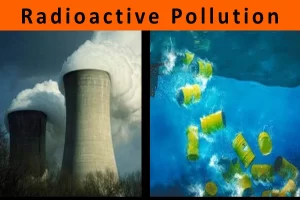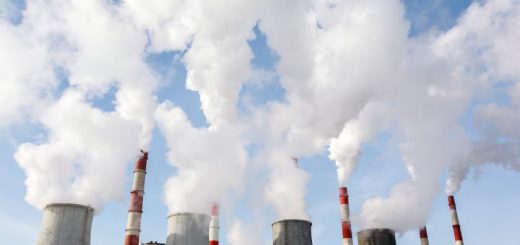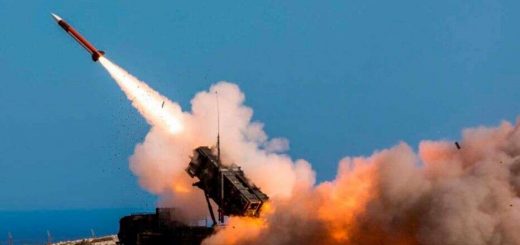Radiation pollution sources, radioactive wastes and how to protect yourself from radiation pollution
Radiation pollution is the increase in the amount of radiation in the environment. The explosion of the Russian Chernobyl reactor was due to an error in operation. After the Chernobyl accident, radioactive isotopes were found in the food products due to the transference of polluted atomic clouds by the wind, then rain fell and radioactive isotopes transferred to the soil and polluted plants and animals.
Sources of radiation pollution
- Natural sources: They are represented by natural radioactive materials found on the Earth’s surface, and cosmic radiation that comes from outer space.
- Artificial sources: They take place due to: the explosion of nuclear bombs that some countries do as experiments from time to time, and due to the nuclear reactors.
Example of radiation pollution
The explosion occurred in the Russian reactor at Chernobyl, It occurs in the 26th of April 1986. It occurs as a result of an error in operation, The melting of the reactor core led to a nuclear explosion and the release of many radioactive elements, These elements formed an atomic cloud, This polluted cloud was carried by the wind to many countries in Europe.
When rain fell (in May), it carried radioactive elements to the Earth’s surface, The plants and soil were polluted by the fallen radioactive elements (isotopes), Cows and sheep ate these plants, and their milk products and meat were polluted by radiation.
Isotopes are atoms of the same element that contain the same number of protons and a different number of neutrons, The radiation pollution may occur in areas in which a nuclear explosion does not occur because the radiation pollution may be transferred by the dry fallen through wind or by falling of rains to the Earth’s surface.
Which radioactive isotopes are found in polluted food…?
The elements that were found in the polluted food after the Chernobyl accident are iodine and cesium isotopes, they are produced from the decay of the nuclear fuel (Uranium-235) when absorbing the neutrons.
The radiation effects on the human body
The effects of radiation on the human body differ in the amount of radiation and duration of exposure to the radiation, These effects can be divided into two groups:
The effects due to exposure to a large dosage of radiation for a short time (one day or less)
This will lead to the damage of:
- Spleen.
- Digestive system.
- Central nervous system.
- Bone marrow which is responsible for the formation of blood cells, so its damage will lead to a decrease in the number of red blood cells in the human body.
Radiation pollution is one of the reasons for leukemia (white blood cells devour red blood cells), Bone marrow is the first which is affected by radiation, When the number of red blood cells decreases in the human body, This will lead to feeling of being sick, Sore throat accompanied by nausea, vertigo, and diarrhea.
Exposure to a large radiation dosage for a short time leads to a decrease in the number of red blood cells due to the damage of bone marrow which is responsible for the formation of red blood cells.
Effects due to exposure to a small dosage of radiation for a long time (months or years)
The most important effects are:
- Physical effects: They are changes that appear on a living organism, as a result of exposure to radiation like skin cancer.
- Genetic effects: They are changes in the sex chromosomes composition which result in abnormal birth.
- Cellular effects: They are changes in the composition of the cell which lead to destroying the cells, For instance, If the chemical composition of the hemoglobin changes, it becomes incapable of carrying oxygen.
Radiation has genetic effects because radiation causes changes in the sex chromosomes composition for living organisms.
Measuring the radiation
The international measuring unit of nuclear radiation absorbed by the human body is the Sievert (SV), 1 milli Sievert = 10-3 Sievert.
The safe dose when exposed to nuclear radiation
The safe dose of nuclear radiation:
- For radiologists (people who work at nuclear radiation fields) is 20 milli Sievert per year.
- For public is I milli Sievert per year.
The safe dose of nuclear radiation depends on:
- Age of the person.
- The period of time in which the person is exposed to nuclear radiation.
- The part of the human body that is exposed to nuclear radiation.
Means of protection from radiation pollution
1. The workers with radioactive elements in labs and hospitals should wear radiation protective gloves, clothes, and masks.
2. Follow the following precautions, while dealing with radioactive wastes:
- Radioactive wastes should be away from underground water paths, to prevent its pollution.
- The area chosen for storing radioactive wastes should be a steady one (not exposed to earthquakes and volcanoes) and away from animals that live in caves to prevent the spreading of the radioactive wastes in the surrounding environment by the effect of earthquakes or volcanoes.
3. Burying of nuclear wastes according to the radiation power emitted from it:
- Mild and moderate nuclear wastes, surrounded by a cement layer or rocks.
- Strong nuclear wastes, are buried deeply in the ground.
4. Issue laws for nuclear stations to cool the hot water before throwing it in seas and lakes.
Some nuclear plants make artificial lakes for themselves to throw their nuclear wastes in them. Nuclear explosions in bombs and atomic reactors cause radioactive contamination that causes serious damage to the environment, with effects lasting hundreds of years.
Workers with radioactive elements must wear radiation-protective gloves, clothes, and masks to protect themselves from radiation pollution. The radioactive wastes should be buried away from underground water’s path to not pollute water. The areas chosen for storing radioactive wastes should be steady to prevent the spread of radiation to other areas.
Radiation poisoning or Radiation Effects on Humans
The nuclear power plant advantages and disadvantages
Nuclear Transformation, Nuclear fission bomb and Nuclear fission reactor
Radiation effects on the human body and protection means from radiation pollution
Radioactivity, Nuclear Energy, radioactive elements & fields of using the nuclear energy




